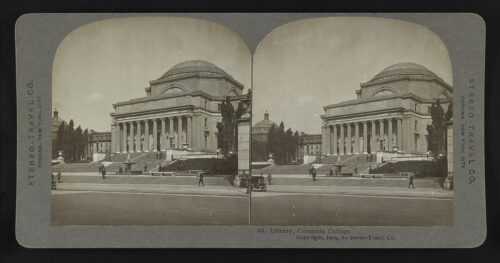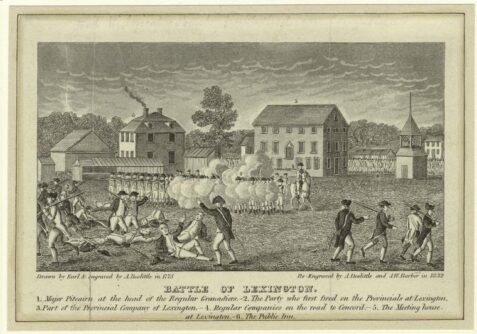A new study discloses the political alchemy of progressive claims, showing there is no empirical evidence to support the demand to violate the First Amendment by revealing donor names.
The relentless drive for donor disclosure—whether for those who donate to political candidates, referenda efforts, or, indeed, nonprofit charities—is a thing more of busybody, results-strategized ideology than it is of science, and a thing too of scant (if any) societal benefit, as a new Philanthropy Roundtable study concludes.
Conducted by University of Rochester political science professor David Primo, this important study, “What Social Science Tells Us About Forced Donor Disclosure,” comes at a time when efforts—by state governments and head-faking lobbying groups which claim opposition to “dark money” contributions because of their alleged undue influence in elections and related public-policy causes—persist to force nonprofits to make public the names of their donors.
This drive comes despite long-established jurisprudence—first articulated in the Supreme Court’s 1958 NAACP v. Alabama ex rel. Patterson ruling, and more recently expanded in the 2021 Americans for Prosperity v. Bonta decision—that holds such disclosure efforts, minus any “compelling justification,” violate the First Amendment’s protection of donor and member privacy under the association right.
“SCOTUS be darned” is the view of many on the political left, such as Rhode Island Democratic Senator Sheldon Whitehouse, who is at the forefront of this pernicious attack on privacy, folding it into larger, contentious “dark money” accusations which allege that voters are unduly swayed and elections rigged (even though the overwhelming evidence shows progressive critics have been the political beneficiaries of “dark money” expenditures) because of donor anonymity, making it a problem that can only be cured, so goes the logic, by mandating disclosure (this ideological diagnosis and remedy encapsulated in the oft-introduced proposed federal legislation dubbed the DISCLOSE Act).
Can the alleged logic of Whitehouse and his co-ideologues be supported not by political wind power but rather by . . . empirical evidence?
The challenge, to assess disclosure “from a social scientific perspective, using the lens of cost-benefit analysis” is Professor Primo’s objective. His Philanthropy Roundtable study in part investigates “the legal rationale for disclosure, focusing primarily on the purported informational benefits of disclosure,” as well as “disclosure costs,” then “covers how one can understand disclosure laws through the lens of an economic theory known as public choice.”
Primo’s verdict? Survey says . . . “the benefits of forced donor disclosure fall far short of what its proponents claim.”
Even in electoral politics, where so much Supreme Court jurisprudence—from the Buckley v. Valeo to the Citizens United v. FEC campaign-fundraising cases—has consumed massive attention of policymakers crusading on behalf of revealing donor information in order to avert, so they say, corruption, Primo asserts that various studies show disclosure laws “have minimal effects on trust in government.”
The same drive to name names and expose donors stretches from campaign-finance policymaking into the adjoining territory of nonprofit regulations. In its Americans for Prosperity v. Bonta ruling, the Supreme Court considered, and struck down, a California law—promoting a rationale of convenience for state auditors (who would have nonprofit donor records at hand in the unlikely event that officials performed an audit of the charity, with the incredible promise that such sensitive information would be kept securely by the bureaucrats)—that offered slim pretexts for violating a donor’s right to associate, anonymously, with a recognized charity.
But the persistence persists: The Primo study documents the issue of donor anonymity now under duress in Arizona, where the “Voters’ Right to Know Act” has “effectively forced” nonprofits—should they comment on a political candidate within 90 days of a primary election—to “disclose donors if they wish to engage in policy related speech during key periods of the legislative session in election years.” The consequence: “at precisely the time when important legislative action is occurring,” writes Primo, “nonprofits are constrained in how they can discuss important legislation.”
How does limiting of speech promote the public good? What compensation outweighs the restriction of a right?
The rationale behind this disclosure mandate is spelled out in the act itself, which assumes this suppression of the First Amendment will “prevent corruption and . . . assist Arizona voters in making informed decisions by securing their right to know the source of monies used to influence Arizona elections.”
Is there evidence to support the claim that, minus such information, Arizona voters might indeed be duped? Or unjustly influenced? The answers to those very questions are the purpose of Primo’s undertaking.
What he finds, as have other studies concerned with campaign-finance efforts that so closely overlap with efforts directed at nonprofits, is that disclosing donor data, for the sheer sake of disclosing, is pointless. “Disclosure data,” he writes, “is only relevant if it provides additional information about an issue or candidate beyond what is already available to voters, and if that information is pivotal in a voter’s calculus.”
As Primo has discovered through previous studies, disclosure information proves marginal to the accumulation of other information about a candidate or a referendum topic. He cites another important recent study (by economics analyst Thomas Robinson) that concludes there is “little evidence that campaign finance information has a distinct impact on vote choice conditional on other highly salient cues,” such as party affiliation.
Translation: “Robinson finds no evidence that personally identifying information about a donor affects voter decision-making.”
Is the inviolability of the First Amendment’s protection of speech and the associative right worth all this demanding and clamoring that nonprofits reveal donor names?
It’s not donors doing the clamoring after all. As Primo makes clear, donor anonymity is important because without it, individuals are “hesitant to give because they fear reprisals or harassment from friends, family members, coworkers, the government, or internet mobs.” This is evident when Primo compares asking about disclosure when applied to others, and then applied to the person being surveyed: “support for all forms of disclosure plummets when the question wording shifts from the ‘for thee’ to the ‘for me’ treatment, in some cases declining by half. Asking about one’s own contributions personalizes the issues and highlights the risks associated with disclosure.”
At the core of the campaign to enact donor-disclosure laws is not some hifalutin desire for information that will protect an easily duped public. The true motivation is to ensure outcomes sought by progressive reformers, who quite publicly engage as much in reforming as they do in projecting. “Disclosure laws,” says Primo, “are needed to get the ‘correct’ policies enacted. Although disclosure laws are framed as designed to provide informational benefits, it appears another goal is to move substantive policies in the direction the reformers prefer.”
Who needs science and empirical data when grandstanding, jawboning, and contrived ad nauseum outrage about “dark money” will suffice? And they will have to suffice, because, as Primo concludes, the evidence is not on the side of disclosure advocates, a fact nonprofits need to embrace and argue:
This paper has shown, using state of-the-art social science research, that campaign finance disclosure is a policy failure. The literature has identified few positive informational benefits of disclosure and has even identified cases where donor disclosure deceives voters. Meanwhile, there is evidence disclosures impose costs on organizations and individuals, potentially chilling speech.
Although the bulk of the literature on disclosure is focused on donors to candidate and ballot measure campaigns, nonprofits are increasingly becoming a target of reformers and policymakers, often by expanding the scope of what constitutes behavior subject to donor disclosure. This makes the research discussed in this paper all the more important for those interested in the role of nonprofits in society. These findings, combined with the public choice scholarship on policymaking discussed in the previous section, should lead to caution in the consideration of further disclosure requirements by courts, legislatures, and policymakers.






